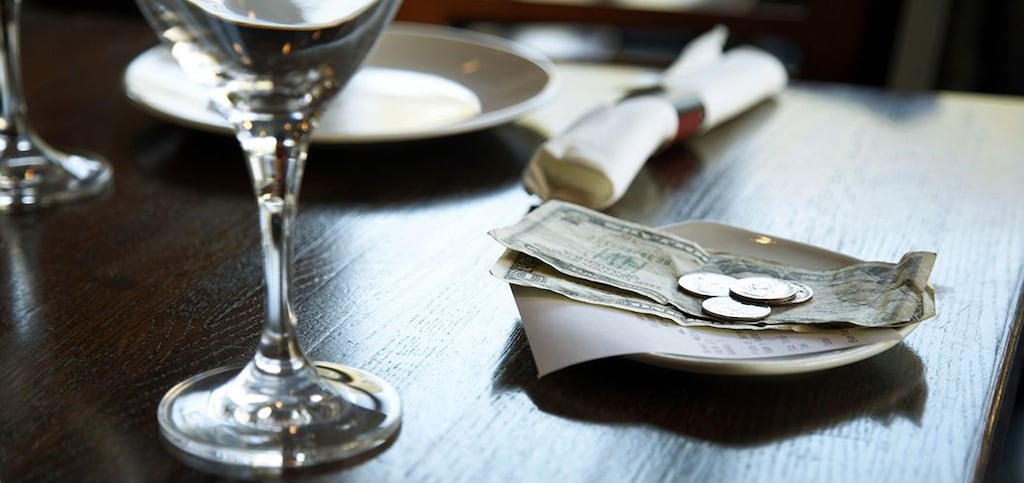As more states and cities raise their minimum wages, some restaurant owners are are finding new ways to fend off their payroll increases. But those changes aren’t always welcome by customers or employees.
In Minnesota, which raised its minimum wage to $8 on August 1, a few restaurants decided to pass some of the extra costs of the minimum wage hikes on to their wait staffs. Blue Plate Co., which has eight restaurants in the Minneapolis and St. Paul area, told employees in early August that the minimum wage hike along with Obamacare laws would cost the company an extra $1.25 million. It began docking waiters’ tips for every customer bill paid by credit card—reducing waiters’ tip income by an estimated 2 percent.
“It’s almost like a perfect storm,” co-owner Stephanie Shimp told the Star Tribune. “It’s putting a lot of pressure on our business. We look at this like we have to focus on investing in wages and keeping the company healthy.”
The move caused such an uproar, however, that earlier this week Blue Plate said it was no longer docking tips. It also raised the base wage of its non-tipped staff to $9.69—an amount calculated as a livable wage in the area by the Massachusetts Institute of Technology.
Another restaurant, River Oasis Café in Stillwater, Minnesota, drew fire when it began adding a 35-cent “minimum wage fee” on to customers’ bills. Owner Craig Beemer told KSTP News that business is "booming" since enacting the charge, even though Minnesota Governor Mark Dayton called the move "tacky."
In Seattle, which is phasing in a $15 minimum wage over several years, many restaurants have reported plans to raise their prices in response to paying their workers a higher hourly wage. A survey of 265 Seattle small-business owners by the Employment Policies Institute found that 70 percent of businesses thought they would see a “big increase” in their labor costs due to the $15 minimum wage. Sixty percent of them reported plans to raise their prices in response to the higher wage, 42 percent said they planned to reduce their employee counts and 43 percent said it was “very likely” that they would have to reduce employees’ hours.
Patrice Rice, the founder of a hospitality recruiting company, told BusinessWeek that she advises her clients to “get creative” in how they fight minimum wage increases—and not just turn to obvious, often stressful solutions like raising prices. For example, she recommends that restaurants introduce new specials that will raise customers’ overall bills while still giving them a deal. (Servers appreciate that, too, because it raises their tips.)
Rice also advises restaurant owners to more closely scrutinize their scheduling to ensure they’re not overstaffing during slow times of the day or week. Some online restaurant scheduling solutions, like ScheduleFly and ShiftPlanning, can help. “You can manage a larger payroll by analyzing peak days and times and not scheduling people on slower shifts,” she says.
Read more articles on money.
Photo: Getty Images




